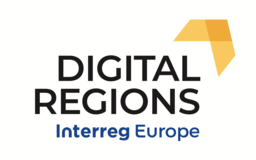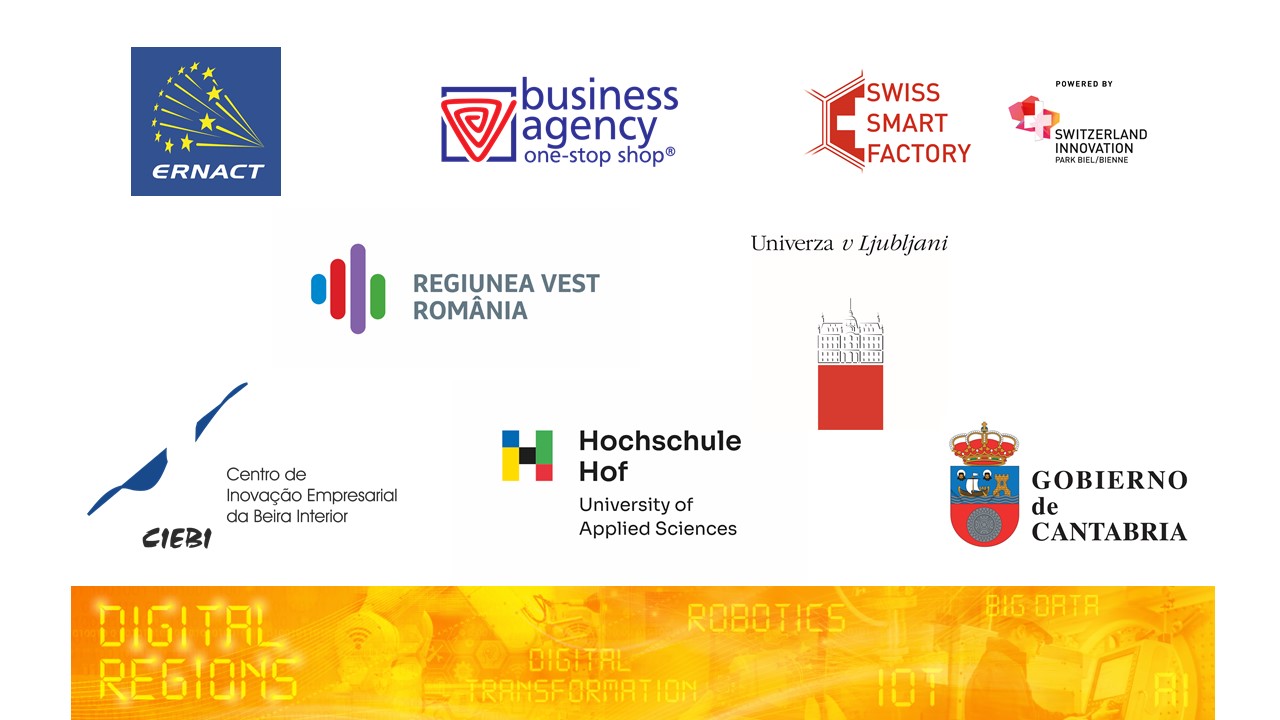DIGITAL REGIONS project partner organisations are currently monitoring the implementation of the Regional Action Plans (RAP). Every six months, the partnership will complete a survey to regularly check the extent to which the measures included in the RAPs are implemented in the regions, to evaluate the results and to gather evidence of success. During the first round of the monitoring process (August 2022 - January 2023), partners have reported 12 actions as part of their RAPs in different stages of implementation.
"The majority of the action plans aims at supporting SMEs in their digitalization process, in the uptake of Industry 4.0 technologies and are including actions such as: operationalization of EDIHs, fast track tool for digitalization of SMEs, action addressing the SMEs needs to increase their capacity to implement innovative digital technologies related to their business and operational processes, ensuring stable conditions for SMEs to explore and analyse new Industry 4.0 and digital technologies in a tangible and practise-oriented way", explains Daniela Copaci, Project Leader.
Actions that are being implemented
Among others, a network of pilot platforms is providing a clear overview of available offers of different existing innovation initiatives to have a search tool for SMEs to find the right support which boost their understanding of digitalization of I4.0. Upskilling and the uptake of digital skills is also tackled by several RAPs including actions such as: diagnosis on digital skills training needs in micro and SMEs; programmes to assist manufacturing businesses build capacity for I4.0 transition; and, consolidation of the regional stakeholders’.
In addition, among other conclusions, partners report that only 1 action out of 12 has received funding from external sources so far and 4 out of 12 are currently being implemented with own resources. When asking DIGITAL REGIONS partners how does these actions influence the selected policy instruments, they have provided the following responses:
- West Region Development Agency (RO): “Engagement with the Managing Authority design team for application guides, with suggestions coming from the regional ecosystem. We intend to create a bridge between stakeholders (suppliers) in digitalization and the management authority whose funding creates the market for digitalization requests financed by EU funds” , Cristin Cistelecan.
- University of Ljubljana (SL): "With the help of activities from the Action Plan, the goals of the Digital Strategy 2030 are being achieved in the area of eliminating the greatest development gaps to accelerate the digital transformation in all areas, increase the competitiveness of the country and the ICT industry, achieve the digitalisation of society, develop and build the digital infrastructure, improve cybersecurity, and promote the development of an inclusive information society", Jure Verhovnik.
- Hof University (DE): "The project has been running since August 2022 with a budget of 5 million euro. The project brings together five companies (mostly SMEs) from northern Bavaria and ten SMEs from south-west Saxony who are manufacturers, IT service providers and process consultants. The project works with an open innovation combined with a collaboration engineering approach and replaces the cost-intensive project model common among process consultants to an SME-specific process model with a positive culture of error. The goal is to introduce various prototypical IT-solutions to the manufacturing SME partners", Katrin Muller.
- Business and Innovation Centre of Beira Interior (PT): "This action plan intends to improve policy management regarding the future Regional Operational Programme 2021-2027, by preparing a report of recommendations and suggestions on digital strategy, digital skills training needs, modernisation of business models and production processes of SMEs to be delivered to the managing authority of the ROP, so that the suggestions can be properly evaluated and CIEBI could (effectively) have an opportunity to improve the next ROP", Paulo Costa.
- Government of Cantabria (ES): "To increase the level of digitalisation of the regional SMEs from the five thematic ecosystems in the Smart Specialisation Strategy’’, Jorge Muyo.
- Business Agency Association (BG): "The Action 2 description is already included in the Innovation strategy for smart specialisation for Bulgaria for 2021-2027 in the section concerning the industrial transition for the Bulgarian economy as a first step towards its implementation through CIEP 2021-2027", Silvia Stumpf.
- Switzerland Innovation Park Biel / Bienne: "The action will be proposed to Canton of Bern & State Secretariat for Economic Affairs (SECO), which has the policy instrument of New Regional Policy (Neue Regionalplitik, NRP) to found tailored actions to strengthen regional economy. One focus of the NRP is to share knowledge, like the NoN as a knowledge platform would do", Dominic Gorecky.












